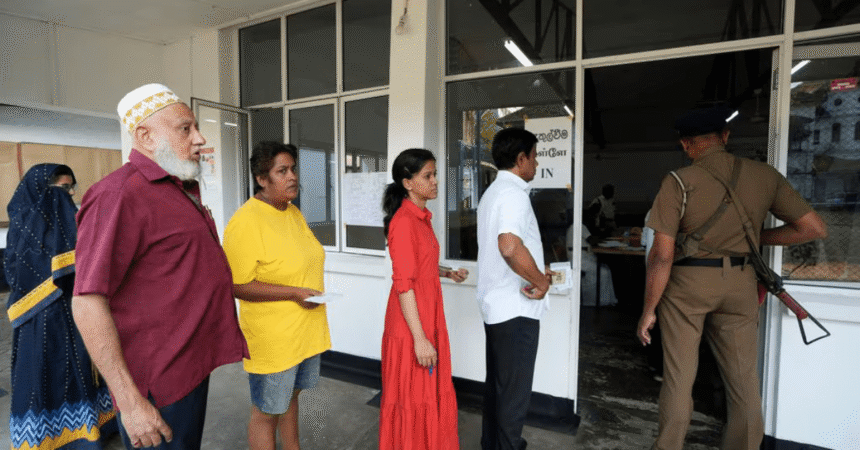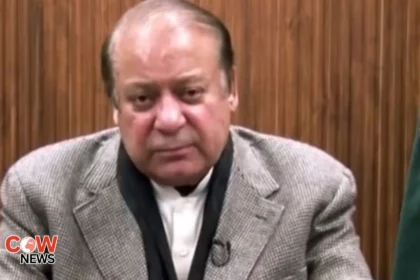Introduction
Sri Lanka is at a crucial juncture as its citizens head to the polls today for a presidential election that has garnered immense attention both domestically and internationally. This election marks the first significant electoral event since the country plunged into an economic crisis in 2022, making it a pivotal moment for the nation’s political landscape. With over 17 million registered voters, the stakes are high as the new leader will play a critical role in steering the country toward recovery and stability.
Context of the Election
Economic Collapse Background
In 2022, Sri Lanka faced its most severe economic crisis in decades, characterized by skyrocketing inflation, shortages of essential goods, and widespread civil unrest. The situation culminated in mass protests, ultimately leading to the resignation of President Gotabaya Rajapaksa. His administration faced intense criticism for its handling of the economy, which was further exacerbated by external factors such as rising global oil prices and the impacts of the COVID-19 pandemic.
The financial meltdown forced Sri Lanka to seek assistance from the International Monetary Fund (IMF), resulting in a $2.9 billion bailout aimed at stabilizing the economy. Under the leadership of the current president, Ranil Wickremesinghe, the country has seen a reduction in inflation rates from an alarming 70% to approximately 0.5%. However, many citizens remain skeptical, as the high cost of living continues to pose challenges for everyday life.
The Political Landscape
The political landscape in Sri Lanka is complex, with a myriad of parties and candidates vying for power. This election features 38 candidates, among which the main contenders are:
- Ranil Wickremesinghe: The incumbent president and leader of the United National Party (UNP), Wickremesinghe took office following the resignation of Rajapaksa. His administration has focused on economic reforms and stabilization, but it faces criticism for perceived inaction and lack of transparency.
- Sajith Premadasa: The leader of the Samagi Jana Balawega (SJB) and a prominent opposition figure, Premadasa has campaigned on a platform of reform and accountability. He emphasizes the need for a government that addresses the needs of all citizens and tackles corruption.
- Anura Kumara Dissanayake: Representing the National People’s Power (NPP), Dissanayake has gained popularity among voters seeking significant change. His campaign focuses on social justice and political reform, resonating with a populace weary of traditional power structures.
This diverse field of candidates highlights the electorate’s desire for a transformative approach to governance and economic recovery.
The Voting Process
Election Logistics
Voting commenced at 7 AM local time and will continue until 4 PM, with more than 13,000 polling stations established across the island. Reports indicate that citizens have been eager to participate, with many lining up early to cast their ballots. This high engagement underscores the significance of the election in shaping the future of the country.
The election employs a ranked voting system, requiring candidates to secure over 50% of the votes to win outright. If no candidate achieves this threshold in the initial count, a second round will occur, redistributing votes among the top two contenders. This electoral format could lead to a lengthy counting process, reflecting the competitive nature of the race.
Security Measures
Security has been heightened across polling stations to ensure a smooth voting process. The Election Commission has deployed a significant number of public officials and law enforcement officers to maintain order and protect the integrity of the election. The heightened security reflects the tense political atmosphere and the public’s desire for a peaceful electoral process.
Voter Sentiment and Public Engagement
Enthusiasm for Change
As voters make their way to polling stations, there is a palpable sense of urgency and enthusiasm in the air. Many citizens view this election as a critical opportunity to redefine their future, and the turnout is expected to be high. The desire for change is rooted in the collective memory of the economic crisis and the social turmoil that followed.
Sajith Premadasa, after casting his vote in Colombo, expressed optimism about the election, stating, “This is an election that will change the history of Sri Lanka. People are voting enthusiastically.” His comments capture the broader sentiment among the electorate, who are eager to see a new direction for the country.
The Role of Youth
The youth of Sri Lanka, many of whom are first-time voters, have shown particular interest in this election. Social media campaigns and grassroots movements have mobilized young voters, encouraging them to participate actively in shaping their political landscape. This generation is more connected and informed than ever, and they are demanding transparency and accountability from their leaders.
Implications of the Election
A Referendum on Wickremesinghe’s Leadership
The election serves as a referendum on the leadership of Ranil Wickremesinghe. While his administration has managed to stabilize inflation rates, many citizens remain skeptical about the overall economic recovery and the government’s ability to address ongoing challenges. Voters are assessing whether Wickremesinghe has done enough to warrant continued support or if it is time for a new leader to take the helm.
Potential for Political Transformation
Should Dissanayake or Premadasa secure a significant share of the vote, the election could lead to a transformative shift in Sri Lanka’s political landscape. A new administration could usher in a focus on social equity, transparency, and effective governance. The electorate’s desire for change suggests that traditional power structures may be challenged, paving the way for a more inclusive political environment.
Challenges Ahead
Economic Recovery
The newly elected president will inherit the formidable task of navigating Sri Lanka toward stability and economic growth. The country continues to grapple with high living costs, public debt, and the need for structural reforms. Addressing these challenges will require adept leadership, strategic planning, and a commitment to engaging with various stakeholders, including international partners.
International Relations
The international community is closely monitoring the election, recognizing its implications for regional stability and economic recovery. A government that prioritizes reform and accountability could improve Sri Lanka’s standing on the global stage, attracting investment and support crucial for recovery.
Social Cohesion
In a nation still reeling from the effects of the economic crisis, the new leadership must also focus on fostering social cohesion. Rebuilding trust among citizens, addressing grievances, and promoting inclusivity will be vital in ensuring a stable political environment. The challenges of post-crisis recovery extend beyond economics; they also encompass the social fabric of the nation.
Conclusion
As Sri Lankans cast their votes today, the nation stands at a critical crossroads. This presidential election is not just an opportunity for citizens to express their aspirations; it is a defining moment for the country to heal and rebuild after recent turmoil. The outcome will influence Sri Lanka’s trajectory, shaping its path toward recovery and stability.
In this election, the people have the power to redefine their future. Regardless of the results, the electorate’s engagement and enthusiasm signal a desire for meaningful change, accountability, and a renewed commitment to the democratic process. The journey ahead will require resilience, unity, and a shared vision for a prosperous Sri Lanka.
#SriLankaElections #EconomicRecovery #RanilWickremesinghe #SajithPremadasa #AnuraKumaraDissanayake #Voting2024 #PoliticalChange #CrisisRecovery #VoterEngagement #SriLankanPolitics







